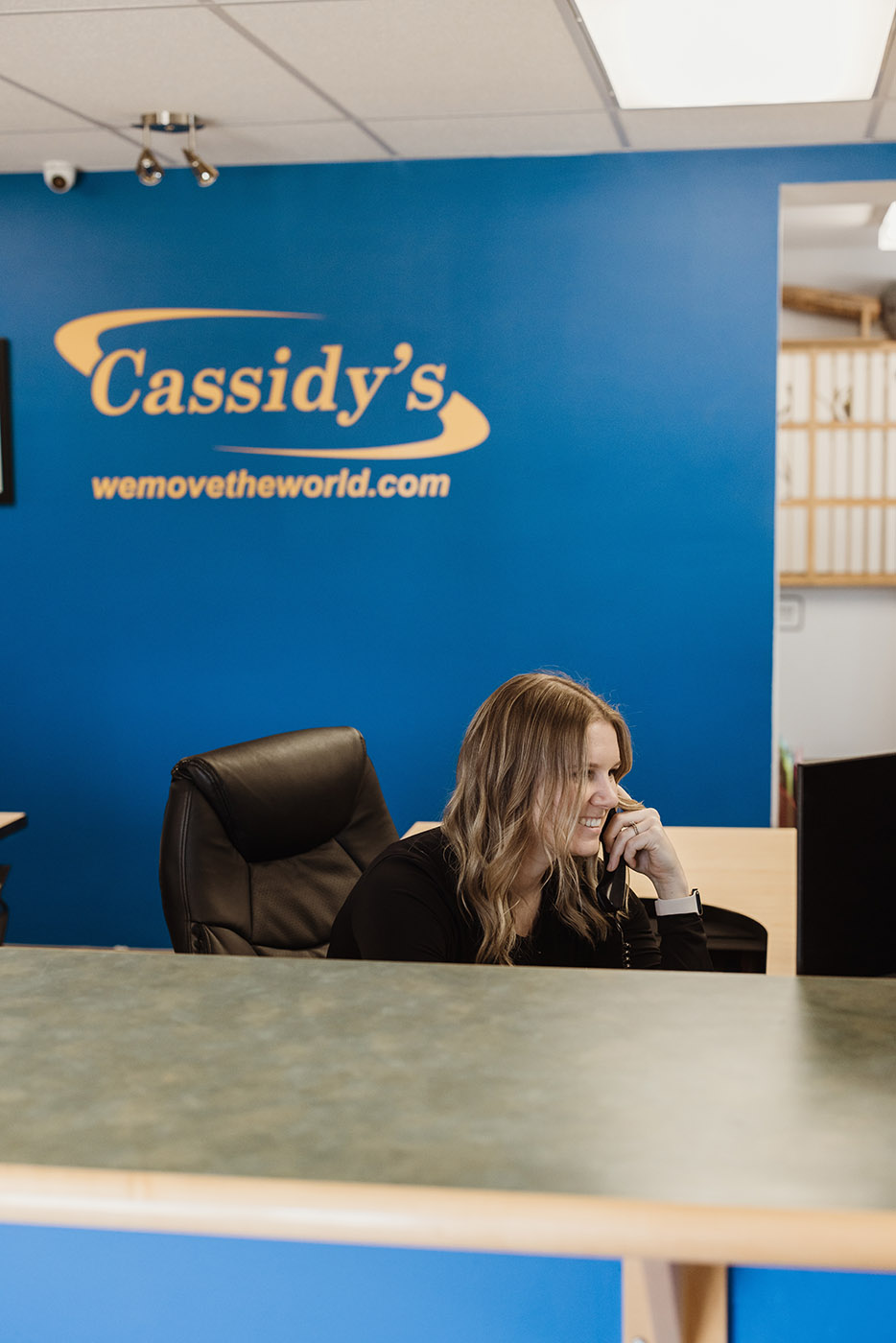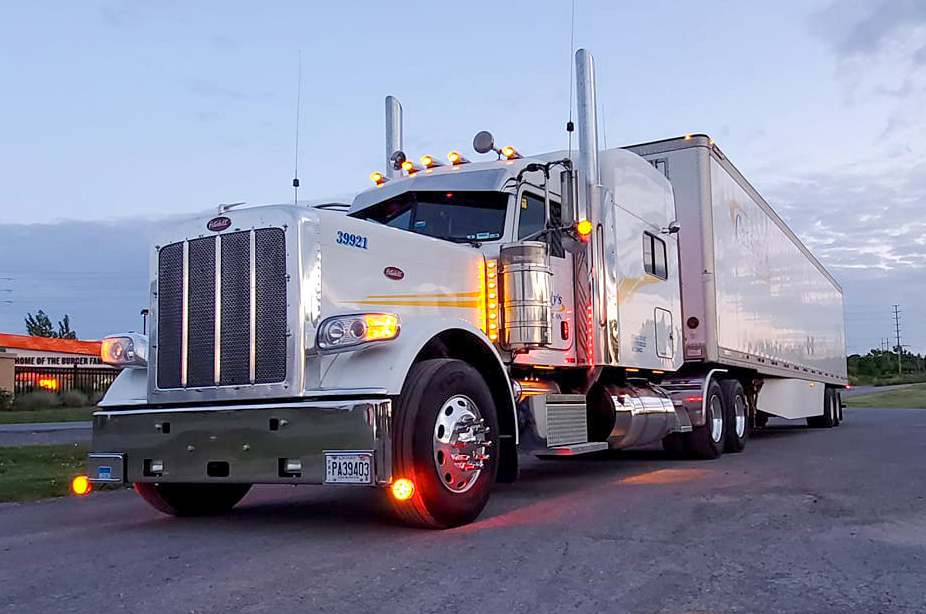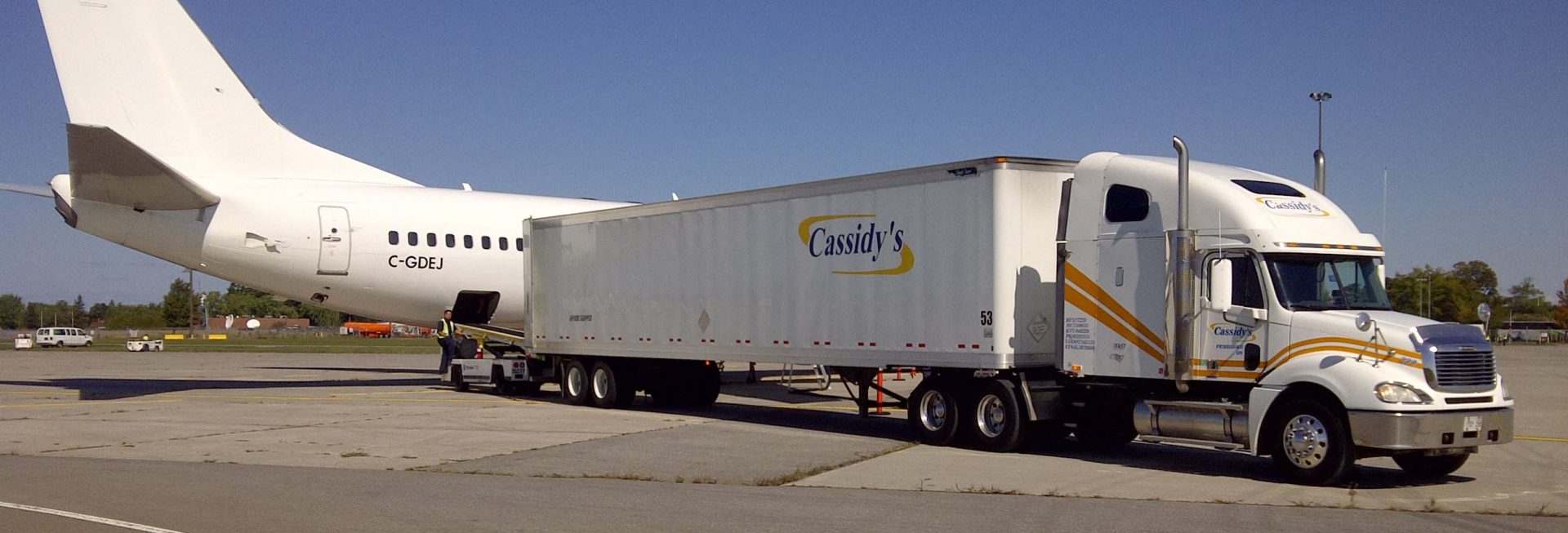How Our Moving Services Work
It all starts when you contact us for your free moving estimate.
- You complete the free estimate form.
- A moving consultant calls to review your move requirements.
- You receive an estimate and we’ll take care of the rest!
“Having moved 6 times in 12 years, we’ve had plenty of recent experience with moving companies. Cassidy’s outdid every other mover.”
Diana Wolfe, Ottawa
Our Vancouver Long Distance Moving Services
Cassidy’s aims to take the stress out of your moving experience so that you can enjoy the adventure of your cross-country move. We’ve been moving people and their possessions locally and around the world since 1908. What that means is that we have the experience of hundreds of different kinds of moves.
From our moving consultants to the caring team that will load up your household belongings into the truck, Cassidy’s is invested in having a team of people who know how to serve you better. No need to worry if you’re out of your depth with your long distance move. Cassidy’s will make sure you know how everything works and have all the paperwork necessary to make your move worry free!
Moving to BC? Maybe you’re moving from Ottawa to Kelowna or Vancouver. No matter what time of year you’re moving, or where in the big city you’re moving to, Cassidy’s long distance moving company will be at your side. We offer comprehensive packing and unpacking services, local and long distance moving services, and can help with the logistics of such a journey. Our experienced Ottawa and Vancouver moving team will get you to your final destination stress free.

We can handle any kind of long-distance move
Trusted Partners
Cassidy’s is a long standing and respected member of the moving industry. We strive to uphold the very best in service, standards, and care no matter how far you’re moving.
We are members of the following organizations:
- United Van Lines
- Canadian Chamber of Commerce
- Canadian Association of Movers
- Air Miles


Pros & Cons
Pros & Cons of Moving to Vancouver
The Pros of Moving to Vancouver
Vancouver has been named one of the best places in the world to live by the Economist Intelligence Unit and many others, and once you read this you’ll know why.
1. Holy Crap, Look at the NATURE!
There’s no denying Vancouver is a beautiful city. Until you’ve been there you’ll find it hard to believe how amazing an experience it can be to just look around.
Nestled between the Pacific Ocean and the mighty Rockies, it’s very difficult to find a view that is not astounding because of the landscape. From almost anywhere, you can see majestic mountains, and often a view of the harbour as well. You even get plenty of beaches, where you can go for a walk or watch the sunset even if it’s too cold for swimming.
Just an hour or two away, there are also forests with trees so big you’ll feel like a Smurf in comparison. They even have almost 1,000 acres of old growth in Stanley Park, right in the downtown area. Other amazing sites are only hours away.
2. Mild Climate
If you’re sick of Ottawa’s freezing winters and boiling, sticky summers, you’ll like this (or maybe just be sick with jealousy). Vancouver winter temperatures average around 4°C to 6°C, with summer temperatures averaging around 18°C to 20°C.
No wonder so many people, especially retirees, dream of moving there.
3. No Snow
OK, maybe not no snow, but very little snow by the standards of the rest of Canada. When you do get snow fall, it doesn’t stick around because it’s warm enough and rainy enough to wash it away.
The side benefit? No salt on the roads, which means cars can last for decades with some TLC.
4. Tons of Snow in the Rockies, Where You Can Ski On It
There are several world-class ski resorts just 2-4 hours drive from downtown. Whistler, Blackcomb, Cypress Mountain, Grouse Mountain, Mount Seymour, Sun Peaks…the list goes on.
If you love to ski, there aren’t many places in the world that would be more perfect for you.
5. Urban Planning that Makes the Most of Limited Space
The urban planning is so revolutionary it has a name: Vancouverism. City planners from around the world go on field trips to study it.
Vancouverism is about achieving density while adding green spaces in almost every neighbourhood. City planners know that people’s views of the mountains and the ocean are important, so they retain them as much as possible. High rise towers are separated by plenty of low rise buildings to preserve sight lines. Almost all of these new buildings are mixed use, with stores and offices on the ground floor and apartments above.
6. SkyTrain…It’s as Cool as It Sounds
When Vancouver started up its commuter rail, they didn’t put it underground like so many cities do – they put it above the city. That’s right – if you’re lucky enough to be able to use it, you get a view with your daily journey to work.
Originally built for Expo 86, the initial track has now been joined by two additional lines totalling almost 50 km of rail. More expansions are planned in the future.
The Cons of Moving to Vancouver
“BC”, by the way, stands for “bring cash”, according to this Reddit post, for reasons you’ll learn about in this section.
1. It’s Unbelievably Expensive
It’s tempting to blame foreign real estate speculators for the high cost of housing in Vancouver. While they do have a role to play, that’s not the fundamental cause. The fact is land is simply very limited in Vancouver: the same ocean and mountains that make it so beautiful also mean the city is hemmed in.
Population in the city is also jumping every year, more so now that the oil boom is no longer raging in Alberta.
So what happens when supply is low and demand is high? That’s right – scarcity and rising prices. The new taxes on foreign housing purchases and empty units will have a small effect, but until they make more land, prices won’t fall by that much.
2. Worst Traffic in North America
While it may be hard to believe, traffic jams in Vancouver are worse than in Los Angeles. Unless you can walk to work, be prepared to spend an extra 11 days a year in gridlock.
3. Higher Crime Rate
While not as bad as in the Prairie provinces, or pretty much any US city, the crime rate may be higher than you’re used to if you’re from Ottawa or other smaller cities. As one of Canada’s largest metropolitan areas, it’s to be expected that it has one of the top 10 highest crime rates in Canada.
These crime rate comparisons, however, show that Vancouver’s violent crime rate has fallen in the last few years. So that’s good news at least.
4. If You’re Not Outdoorsy, You May Find it Boring
Looks like people in Ottawa can relate to the “boring” culture in Vancouver. This blogger found that compared to Montréal, Vancouver has “no soul”.
To be fair to Vancouver, we should point out that Montréal is the most fun of any city in Canada. If that’s what you’re used to, anything else is going to be a letdown.
Vancouver is about living healthy. It also has stricter rules that govern how frolicksome the nightlife can get. If you’re into staying fit and enjoying the great outdoors with activities like hiking, mountain biking, rock climbing, sailing, and of course skiing, you’ll feel right at home.
5. The Big One is Coming
Just like their American cousins all along the west coast, Vancouverites fear the coming of “the big one”. Specifically, this refers to a massive apocalyptic earthquake, and also possibly a tsunami.
The Rockies are young, geologically active mountains, and small to medium sized earthquakes occur with some regularity. Because the Pacific Ocean plate is subducting under the North American plate just offshore the coast of Vancouver Island, seismologists predict a 1-in-10 chance of a magnitude-9 earthquake in the next 50 years.
To make matters worse, there are many older buildings, including schools, that aren’t properly designed to withstand an event that severe.
So Should You Move to Vancouver?
If you’re on a tight budget, you may not be able to afford the natural wonders of Vancouver. On the other hand, if you have a job locked down, go for it. You can always move to Victoria later if you can’t afford an apartment.

